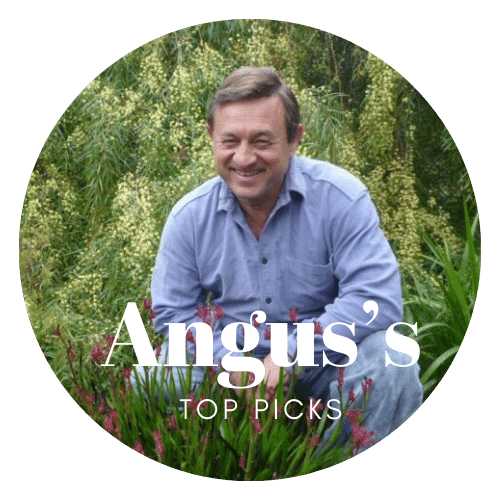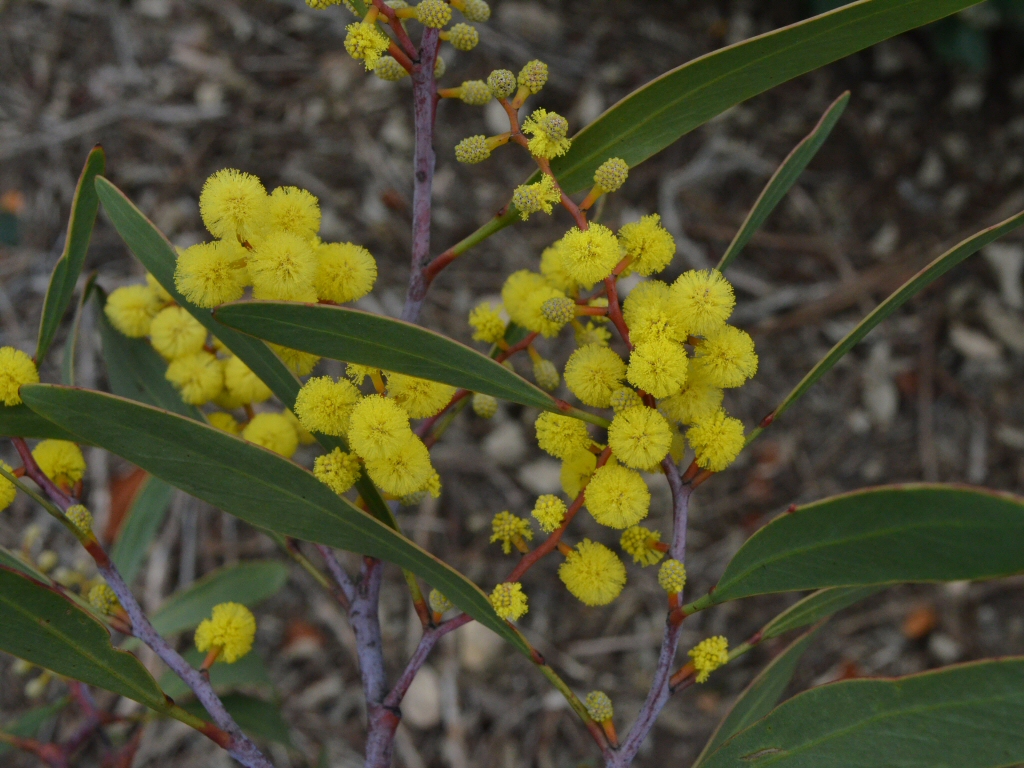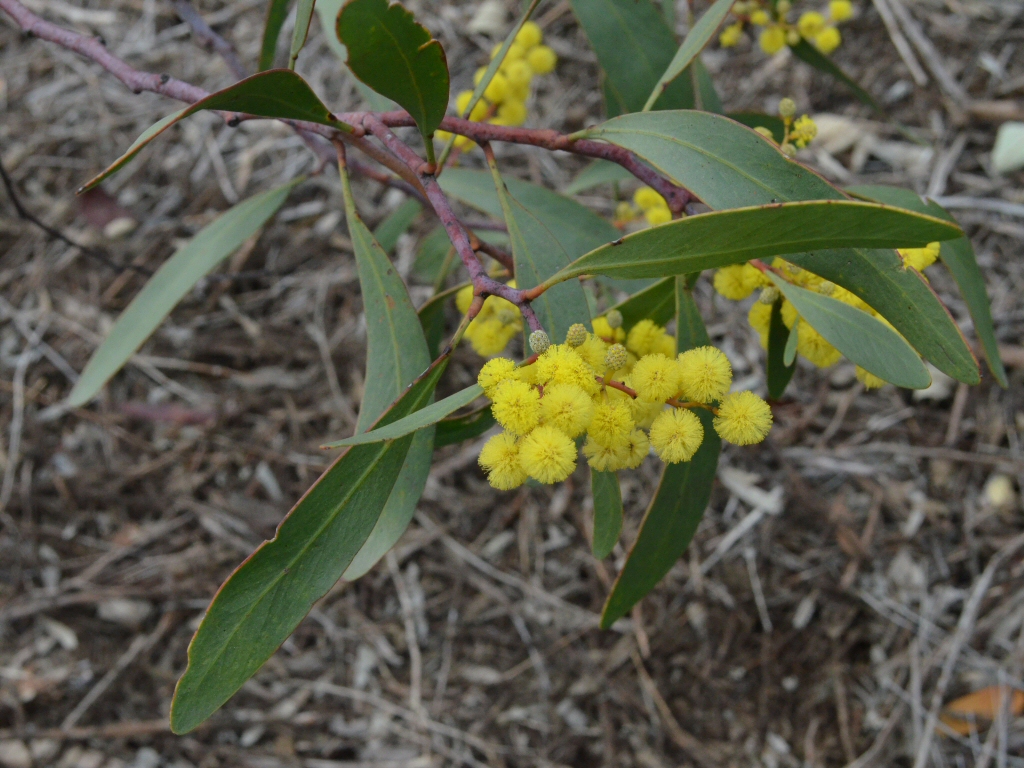The golden wattle is the floral emblem of Australia with its masses of sunshine yellow balls of flowers brightening the bush and gardens in late winter to early spring. It grows from 2 to 10 metres tall and is fast growing, but sadly can be short lived. Adapts to most soils as long as they are free draining, and can take some frost and dry periods. Performs best in temperate climate zones. A useful plant- the flowers are fragrant and can be used for making perfume, the seed is edible and the bark is rich in tannins. Green seed can be cooked like peas. Ripe seed can be baked then ground with a mortar and pestle into a low glycaemic flour.
Note– this plant originates from South Australia, but has become a problem plant in some areas where it is becoming weedy and competing with the natural species. Southern Western Australia is one area where this happening.


